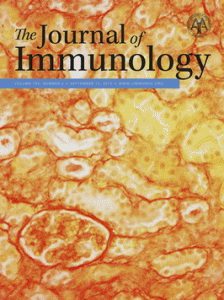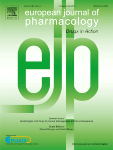 The week at Retraction Watch featured yet another case of fake peer review, and a court sentence for a Danish researcher found to have committed fraud. Here’s what was happening elsewhere (stay tuned for part 2 tomorrow): Continue reading Weekend reads, part 1: Editor slams PubPeer; scientific fraud pays off
The week at Retraction Watch featured yet another case of fake peer review, and a court sentence for a Danish researcher found to have committed fraud. Here’s what was happening elsewhere (stay tuned for part 2 tomorrow): Continue reading Weekend reads, part 1: Editor slams PubPeer; scientific fraud pays off
Publisher bans authors for apparent plagiarism
 Three authors have been banned from journals published by IGM Publication, including the Journal of Medical Science and Clinical Research.
Three authors have been banned from journals published by IGM Publication, including the Journal of Medical Science and Clinical Research.
The ban — a relatively infrequent occurrence in publishing — comes after the publisher removed a 2014 article that seems to have merely changed the title and authors of a 2013 article from another journal.
When a tip from a reader pointed to the possibility of duplication between the two articles, Continue reading Publisher bans authors for apparent plagiarism
Author objects to retraction for not “faithfully represented” immunology figures
 All but one of the authors of a study about the immune response to H. pylori have agreed to a retraction in The Journal of Immunology, due to two of the paper’s figures not being “faithfully represented.”
All but one of the authors of a study about the immune response to H. pylori have agreed to a retraction in The Journal of Immunology, due to two of the paper’s figures not being “faithfully represented.”
Authors of the 2006 paper said they were unable to provide the original unedited scans “due to inadequate archiving dating back almost 10 years.” The authors — with the exception of the first author, Sushil Kumar Pathak, apologized for the error.
The notice, which has been appended to the pdf, reads:
Continue reading Author objects to retraction for not “faithfully represented” immunology figures
Violent songs can lead to spicy food, and other lessons we learned from corrected graphic
A correction to a 2011 paper doesn’t change its main conclusion: Hearing song lyrics about violence — “let the bodies hit the floor,” for example — can prompt aggressive behavior, even more so than violent imagery in music videos.
The correction follows an investigation by Macquarie University that found errors in data analysis to be an “honest mistake.”
During the study — “The effect of auditory versus visual violent media exposure on aggressive behaviour: The role of song lyrics, video clips and musical tone,” published in the Journal of Experimental Social Psychology — the authors measured the effect of violent songs or imagery using the “hot sauce paradigm.” In this model, researchers estimate people’s level of aggression by how much hot sauce they give another person to eat. The study found that, indeed, people who are exposed to violence — particularly, lyrics — give more hot sauce to their neighbors. It has been cited 6 times, according to Thomson Scientific’s Web of Knowledge.
One aspect of the paper prompted a tweet from a Dutch journalist: Continue reading Violent songs can lead to spicy food, and other lessons we learned from corrected graphic
“Rigging of the peer-review process” kills parasite paper
A paper on nematode parasites appears to have been infected with a nasty strain of a publishing problem known as fake peer review. By our count, the phenomenon has felled approximately 250 papers in total.
The affected review, “The important role of matrix metalloproteinases in nematode parasites,” explores a type of enzyme secreted by the parasite. Published in Helminthologia, it’s been cited once, according to Thomson Scientific’s Web of Knowledge.
Unfortunately, the retraction note doesn’t give us too many details about how the peer review process was manipulated:
Continue reading “Rigging of the peer-review process” kills parasite paper
Danish neuroscientist sentenced by court for lying about faked experiments
 In a rare development, neuroscientist Milena Penkowa has been sentenced by a Danish court for faking data.
In a rare development, neuroscientist Milena Penkowa has been sentenced by a Danish court for faking data.
The ruling, from the Copenhagen City Court, resulted from Penkowa’s publication of her 2003 thesis describing experiments that she never carried out. The court “placed weight” on the fact that she didn’t just commit fraud, but “systematically supplied false information” to avoid being caught, according to the court’s notice.
The sentence is nine months of “conditional imprisonment,” according to our translation; The University Post, a newspaper affiliated with the University of Copenhagen, calls it a “nine month suspended sentence with a two years probation.”
Here’s the full summary of the new ruling, from the Copenhagen City Court (translated from Danish by One Hour Translation):
Continue reading Danish neuroscientist sentenced by court for lying about faked experiments
Predatory journals published 400,000 papers in 2014: Report
 The number of so-called “predatory” open-access journals that allegedly sidestep publishing standards in order to make money off of article processing charges has dramatically expanded in recent years, and three-quarters of authors are based in either Asia or Africa, according to a new analysis from BMC Medicine.*
The number of so-called “predatory” open-access journals that allegedly sidestep publishing standards in order to make money off of article processing charges has dramatically expanded in recent years, and three-quarters of authors are based in either Asia or Africa, according to a new analysis from BMC Medicine.*
The number of articles published by predatory journals spiked from 53,000 in 2010 to around 420,000 in 2014, appearing in 8,000 active journals. By comparison, some 1.4-2 million papers are indexed in PubMed and similar vetted databases every year.
These types of papers have become a major problem, according to Jeffrey Beall, a librarian at the University of Colorado Denver who studies the phenomenon: Continue reading Predatory journals published 400,000 papers in 2014: Report
NIH rescinds grant to Texas eye researcher
 A scientist who uses imaging to study the eye and brain has lost a major grant from the U.S. National Institutes of Health.
A scientist who uses imaging to study the eye and brain has lost a major grant from the U.S. National Institutes of Health.
In June, the NIH revised the award for Timothy Duong at the University of Texas Health Science Center at San Antonio from $332,500 per year to $0, and included this statement: Continue reading NIH rescinds grant to Texas eye researcher
Investigation finds “careless data workup” in alcoholism drug paper
An investigation at Karolinska Institute has led to the retraction of a paper about drug treatments for alcoholics, after concluding the article contains a “very careless data workup.”
The paper, “Memantine enhances the inhibitory effects of naltrexone on ethanol consumption,” found that the drug memantine (normally used to treat Alzheimer’s) enhances the effects of naltrexone in rats, which blocks the high of alcohol. It was published in the European Journal of Pharmacology and has been cited 10 times, according to Thomson Scientific’s Web of Knowledge.
However, its conclusion is now “unreliable,” according to the retraction note:
Continue reading Investigation finds “careless data workup” in alcoholism drug paper
Should peer review be open, and rely less on author-picked reviewers? Study says…
 After reviewing hundreds of peer review reports from three journals, authors representing publishers BioMed Central and Springer suggest there may be some benefits to using “open” peer review — where both authors and reviewers reveal their identity — and not relying on reviewers hand-picked by the authors themselves.
After reviewing hundreds of peer review reports from three journals, authors representing publishers BioMed Central and Springer suggest there may be some benefits to using “open” peer review — where both authors and reviewers reveal their identity — and not relying on reviewers hand-picked by the authors themselves.
But the conclusions are nuanced — they found that reviewers recommended by authors do just as good a job as other reviewers, but are more likely to tell the journal to publish the paper. In a journal that always uses open reviews — BMC Infectious Diseases — reviews are “of higher quality” than at a journal where authors are blinded to reviewers, but when one journal made a switch from a blinded to an open system, the quality didn’t improve.
Here’s what the authors conclude in the abstract of the paper, published today in BMJ Open: Continue reading Should peer review be open, and rely less on author-picked reviewers? Study says…


